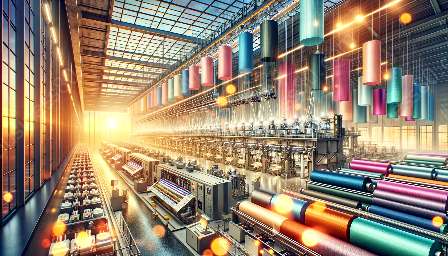Textile recycling plays a crucial role in the sustainable management of textiles & nonwovens industry. It is essential to understand the environmental impacts, benefits, and challenges associated with textile recycling to promote a greener and more sustainable future.
The Importance of Textile Recycling
Textile recycling is vital in reducing the environmental impact of the textiles & nonwovens industry. It helps in minimizing the amount of textile waste that ends up in landfills and incinerators, consequently reducing the carbon footprint.
Environmental Benefits of Textile Recycling
One of the major environmental benefits of textile recycling is the conservation of natural resources. By reusing and recycling textiles, the need for raw materials such as cotton, wool, and synthetic fibers is reduced, leading to a decreased demand for water, pesticides, and energy used in manufacturing new textiles.
Furthermore, textile recycling helps in reducing the emission of greenhouse gases associated with the production of new textiles. The energy and water consumption in manufacturing new textiles is significantly higher compared to recycling, making it an environmentally friendly option.
Challenges in Textile Recycling
Despite the environmental benefits, textile recycling also faces challenges. One of the main challenges is the lack of infrastructure and facilities for collecting and processing textile waste. Additionally, the sorting and separating of various types of textiles for recycling can be complex and require advanced technology.
Connection between Textile Recycling and Sustainability
Textile recycling is closely linked to sustainability. By extending the lifespan of textiles through recycling, the industry contributes to sustainable practices, reducing the need for intensive resource consumption and waste generation.
Furthermore, sustainable textile recycling practices promote the circular economy, where textiles are reused, remanufactured, and recycled, thereby contributing to the conservation of resources and reduction of environmental impact.
Impact on the Textiles & Nonwovens Industry
Textile recycling has a significant impact on the textiles & nonwovens industry. As the industry embraces sustainable practices, the demand for recycled textiles increase, driving innovation in recycling technologies and promoting eco-friendly textile production.
The shift towards sustainable textile recycling also enhances the industry's reputation and market competitiveness, appealing to environmentally conscious consumers and businesses.

